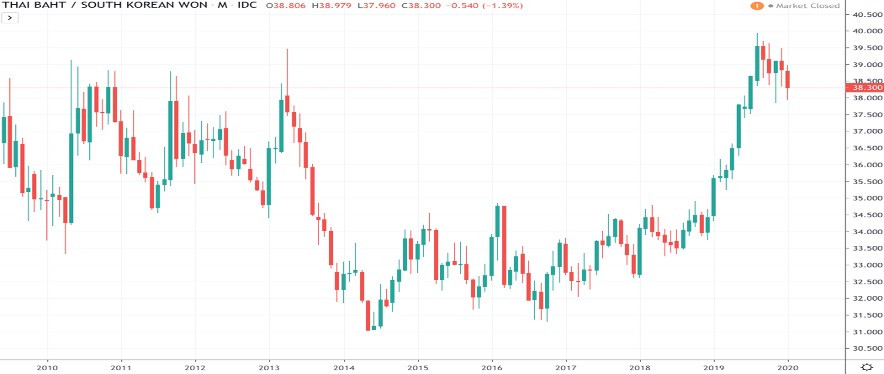The Speaker is short the Thai baht against the South Korean won. The cross-rate is at multi-year highs which presents an attractive opportunity, especially after the breakout of the coronavirus.
The Thai baht was Asia’s top performing currency in 2019, up 9 percent. The Speaker said it’s a “mini me” version of the Japanese yen in attracting safe haven flows during times of uncertainty like last year given its massive current account surplus. However, the Bank of Thailand is worried about the nation’s competitiveness and plans to rein in the baht by easing curbs on foreign-currency deposits, letting exporters keep more of their proceeds overseas and allowing insurance companies to increase investment abroad.
The Speaker notes that Chinese travelers are the biggest foreign spenders in Thailand, accounting for about 30% of tourist receipts last year. Thus, the coronavirus will weigh disproportionately on Thailand’s economy. This comes at a time when the baht is already the most expensive currency in Asia. Another participant noted that Thailand is also going to be one of the biggest losers from the world moving towards a China-centric bond orbit as investment flows get redirected.
The Speaker likes pairing the baht short with a long position in the won. South Korea has been caught in the crossfire of trade and tech wars. But this is abating as chip prices have bottomed, a new tech cycle is up starting with normalization of NAND and DRAM inventories and the increase in demand for 5G services, and the US-China trade confrontation is put on a backburner.

Source: Trading View

Photo: Pexels






